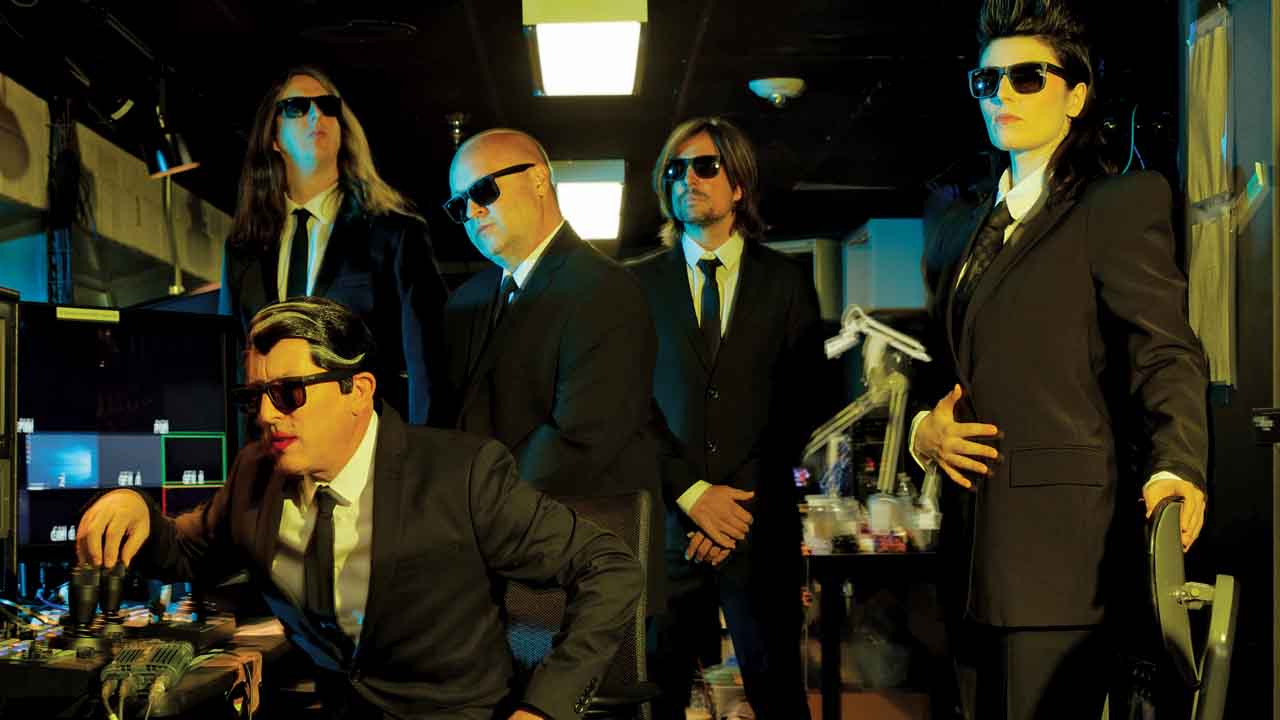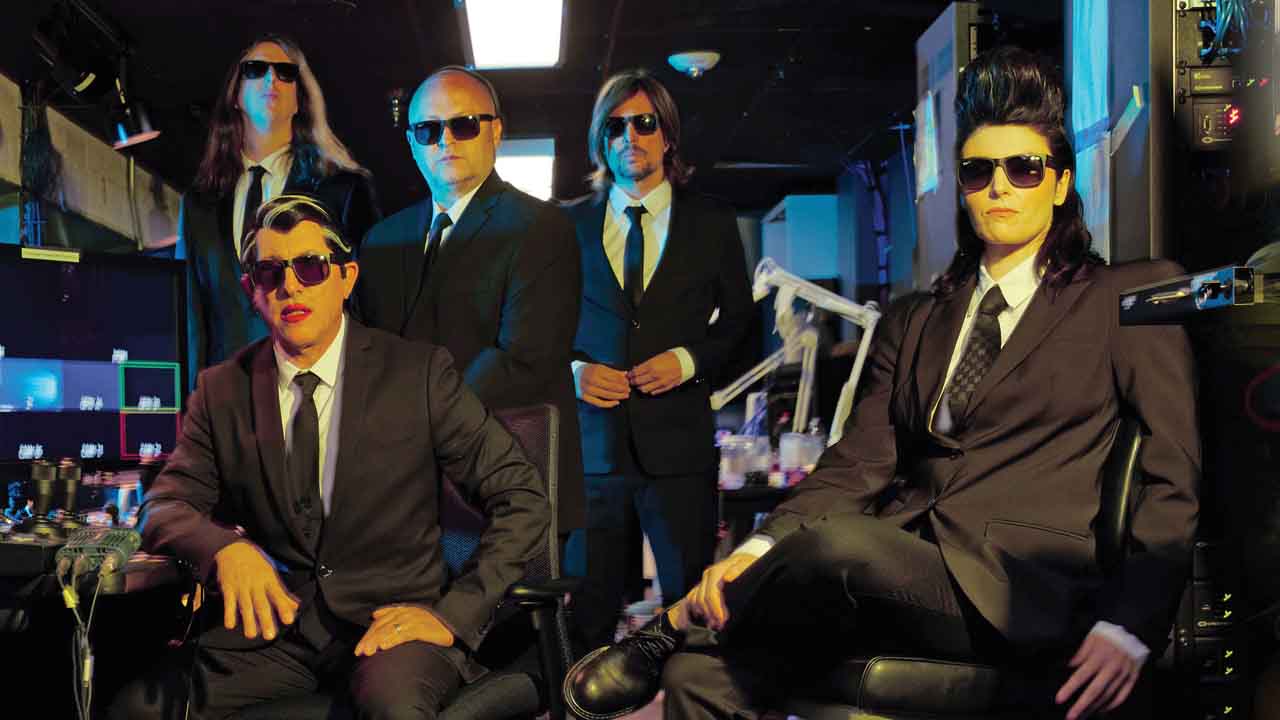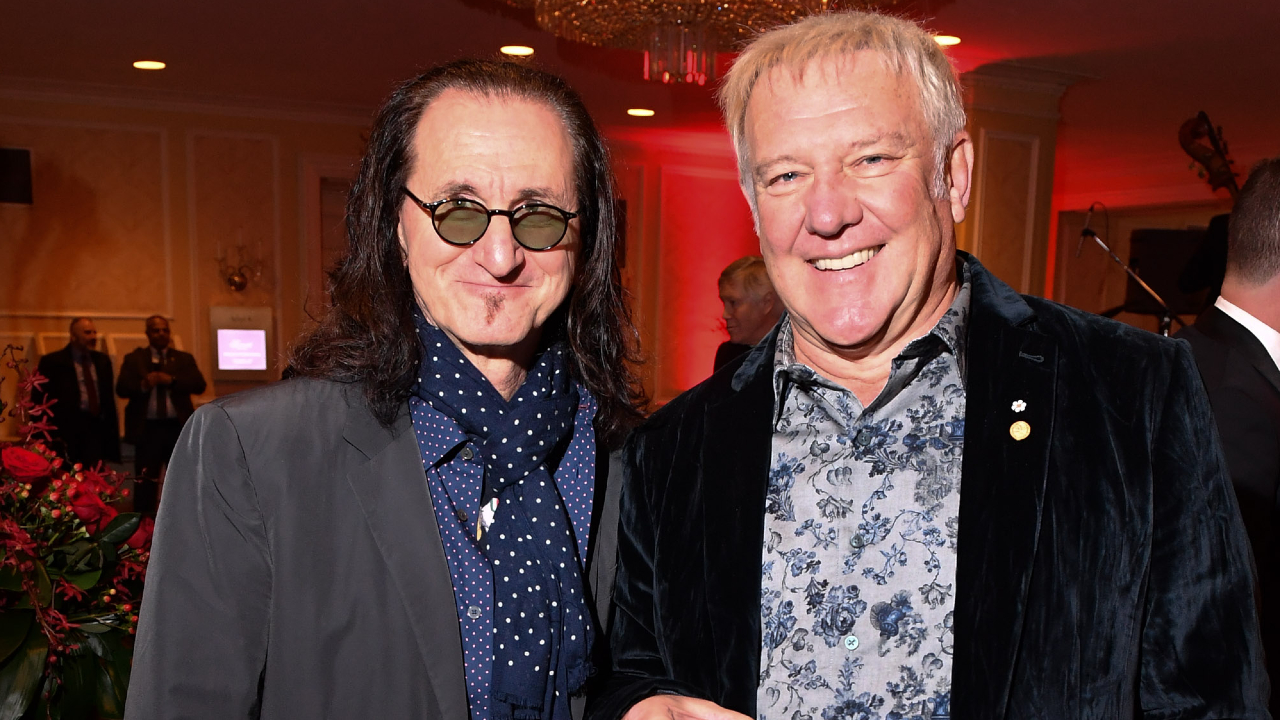Puscifer’s Maynard James Keenan: “What are you gonna do? Lay around and whimper?”
The world is crazier than ever right now – and Puscifer have the perfect soundtrack

Select the newsletters you’d like to receive. Then, add your email to sign up.
You are now subscribed
Your newsletter sign-up was successful
Want to add more newsletters?

Every Friday
Louder
Louder’s weekly newsletter is jam-packed with the team’s personal highlights from the last seven days, including features, breaking news, reviews and tons of juicy exclusives from the world of alternative music.

Every Friday
Classic Rock
The Classic Rock newsletter is an essential read for the discerning rock fan. Every week we bring you the news, reviews and the very best features and interviews from our extensive archive. Written by rock fans for rock fans.

Every Friday
Metal Hammer
For the last four decades Metal Hammer has been the world’s greatest metal magazine. Created by metalheads for metalheads, ‘Hammer takes you behind the scenes, closer to the action, and nearer to the bands that you love the most.

Every Friday
Prog
The Prog newsletter brings you the very best of Prog Magazine and our website, every Friday. We'll deliver you the very latest news from the Prog universe, informative features and archive material from Prog’s impressive vault.
When we call Maynard James Keenan at home in Jerome, Arizona, he’s already been up for several hours. Rising at 6.30am, he walked and fed his dogs Crystal, Winston, Sophie and Miho… and 23 ducks.
“Quite a few of them have names, but some don’t for obvious reasons down the road,” he explains. “All the eggs we get from the ducks go into making our pasta at the tasting rooms.”
His life of winemaking, farming, and making music around the grape harvest is well established, but even that routine was threatened by this year’s events. While on tour with Tool, Maynard caught COVID-19. At the time, he didn’t know what it was; all he knew was that after the initial illness, some symptoms lingered. Nonetheless, back home he pushed on with making the fourth Puscifer album, Existential Reckoning, and filmed a live performance for its day of release.
“Just being the kid growing up in Michigan, shovelling snow out of the way to get to school because your parents are teachers, you find a way through it,” he explains. “I finished an album, processed 80 tons of grapes, made mead, shot a concert – you just figure it out. What are you gonna do? Lay around and whimper?”
There’s a longstanding assumption that Maynard James Keenan is enigmatic, but his work ethic is straightforward and Existential Reckoning couldn’t have a more blunt title. Across 12 synth-led tracks, he and co-conspirator Carina Round sing about corrupt leaders, social disconnection and the general dangers facing humanity – similar preoccupations to his last albums with A Perfect Circle (Eat The Elephant) and Tool (Fear Inoculum), and ones that have taken on new significance in 2020.
But the record was started five years ago, when guitarist Mat Mitchell picked up a vintage Fairlight synthesiser. He put together a folder of ideas, and Maynard started properly digging into it at the beginning of 2019, developing characters and stories. Usually Mat and Carina work on their parts at a studio in LA, before driving to his mountainous home to bring everyone’s ideas together.
“My process when I was working on this stuff was to drive around listening to it in the car, and then disappear inside a room, and then try to access quickly some part of my subconscious that can puke out something unique and interesting,” smiles Carina, when we call her in Burbank, California. “Sometimes Maynard will have a whole lyric on there with a melody, but sometimes it’s just a rhythm. I do what needs to be done, then it goes back to him, then it goes back to Mat, and we just ricochet in that way until the song becomes itself.”
Sign up below to get the latest from Metal Hammer, plus exclusive special offers, direct to your inbox!

It’s a group dynamic Maynard enjoys. “We’re all really good at listening,” he explains. “I don’t know if you’re a cook at all, but one loud spice can ruin a dish. You wanna be the salt or the acid in a dish, not the insane Thai chilli pepper, right? You wanna be the one that’s going to support the dish, rather than completely mute it with overwhelming flavours.”
So far, so comprehensible, but then there’s a moment in our conversation when Maynard does become enigmatic. Puscifer have always had a theatrical element, featuring a cast of characters that sometimes crop up in photoshoots, album artwork and onstage costumes. The main character is Billy D, and the press release for this album stated that in 2016, he’d disappeared in the desert, rumoured to have been abducted by aliens. Through clandestine means, Puscifer – a group of undercover special agents – have tracked him down. What does it all mean?!
“People ask, ‘What is Puscifer?’” he says, echoing the title of a mockumentary they put out in 2013. “The answer is, ‘What is Puscifer is, what Puscifer is.’” There is a long silence. “There are all kinds of loose breadcrumbs, and you have to sign on to the whole project to slowly connect them all together, if they connect.”
There are hints in the videos for Existential Reckoning’s singles. The first, for the breathy, robotic Apocalyptical, was released in May, and features a man in a hazmat suit skateboarding around a deserted Los Angeles. He eventually reaches a toilet-paper-filled warehouse guarded by special agent-in-training Maynard, who hands him a roll. Despite this off-kilter year, the singer’s still managing to find humour, even in the mundane.
“It helps to be Irish, I suppose,” he says. “You just keep yourself grounded. Right now, I’m staring out of my window. We have kale growing outside the house, which isn’t going to tend itself. I don’t know if you’ve ever watched ducks walk, but they’re pretty fucking hilarious! So there’s things you need to do, they need to get done, and there’s also humour within those things. The ducks don’t give a shit about the election.”
The more serious side of Existential Reckoning is the overriding message that we’re being screwed over by our leaders, and getting distracted by social media that either reinforces our worldview or puts us in conflict with those who don’t share it. Apocalyptical features lyrics about being dumb, while the title of the mournful Bread And Circus speaks for itself. Grey Area – complete with brilliant, siren-like backing vocals from Carina – states: ‘This is the age of confusion.’
“I feel like social media and the internet has really driven a wedge in between people,” he says. “Just the whole concept of liking a thing, or not liking a thing, and then having whatever you see for the next several months be exactly what you wanna see and not what you don’t wanna see. It’s like staring into a mirror, very narcissistic, and it’s not very healthy. So that division gets wider and wider, the polarisation; every conversation online starts with an argument.”
One particular song, UPGrade, uses technology as a metaphor and urges us to not to shut down, but to create. One particularly poignant lyric is: ‘How does one choose words so magical they terminate or alleviate this morbid despair you feel?’ It encapsulates how difficult it is to know what to say to people who are struggling, or even to yourself.
“That’s why we make art, right?” says Maynard. “That’s why we paint, that’s why we cook, that’s why we create sculptures, that’s why we write poetry, because we’re not quite sure, so we’re just going to keep trying.”
For all its comedy and tragedy, Existential Reckoning does contain that kernel of hope. Personal Prometheus speaks to self-determination, while final song Bedlamite soothingly repeats the affirmation, ‘It’s gonna be alright, everything will be alright.’ Will it be…?
“The worse it gets, the more hope I have,” says Carina. “That’s who we are as humans. We are extraordinarily resilient to extreme circumstances. In terms of what people can derive from this record, just get some fucking joy out of it. We all got joy out of creating it.”
“It’s like you were saying, trying to figure out a way to say the right words to move toward healing on multiple levels,” Maynard says. “You’re looking, there has to be that ray of hope. I have a lot of friends that have been in bands that have no ray of hope. I don’t really know that any of them are still making music. If you’re an artist, there has to be some way out. I think it’s important for everybody.”
It seems like a stupid question to ask, but why? “Otherwise, what’s the fucking point?” he hits back. “Then you’re just hunting, gathering, eating and dying. The dance around the fire is the most important part to me.”

Eleanor was promoted to the role of Editor at Metal Hammer magazine after over seven years with the company, having previously served as Deputy Editor and Features Editor. Prior to joining Metal Hammer, El spent three years as Production Editor at Kerrang! and four years as Production Editor and Deputy Editor at Bizarre. She has also written for the likes of Classic Rock, Prog, Rock Sound and Visit London amongst others, and was a regular presenter on the Metal Hammer Podcast.
